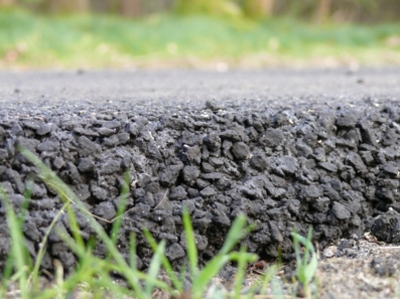Exploring the Environmental Advantages of Warm Mix Asphalt
The application of Hot Mix Asphalt in infrastructure tasks offers an engaging situation for sustainable growth and environmental stewardship. By delving into the detailed information of its manufacturing procedures and the cutting-edge use of recycled materials, a deeper understanding arises of exactly how this innovation exceeds mere surface area applications. The ecological advantages of Warm Mix Asphalt prolong much past initial impacts, providing a nuanced perspective on just how this material can lead the way for a greener future.

Minimized Greenhouse Gas Emissions
The manufacturing process of Hot Mix Asphalt includes warming the blend of aggregate and asphalt binder to high temperature levels. By including recovered asphalt pavement and recycled asphalt roof shingles into the mix, the demand for virgin materials is reduced, leading to energy cost savings and reduced exhausts associated with extraction and processing.
Studies have actually shown that Warm Mix Asphalt pavements have a smaller carbon footprint over their life cycle contrasted to various other sidewalk options. The sturdiness and recyclability of Hot Mix Asphalt additionally boost its environmental benefits by lowering the requirement for constant upkeep or substitute, thereby preserving sources and decreasing exhausts connected with reconstruction activities.
Energy Performance and Preservation
The production process of Hot Mix Asphalt not only reduces greenhouse gas emissions but also adds significantly to power performance and preservation initiatives. Energy effectiveness is an essential advantage of Warm Mix Asphalt manufacturing contrasted to other pavement types. The durability of Hot Mix Asphalt lowers the regularity of upkeep and restoration, leading to long-lasting energy cost savings.
Lasting Pavement Solutions

One trick facet of lasting sidewalk remedies is using recycled products such as redeemed asphalt sidewalk (RAP) and recycled asphalt tiles (RAS) By including these products right into the asphalt blends, the need for virgin resources is decreased, causing lower energy consumption and greenhouse gas emissions during manufacturing. In addition, the reuse of these products assists divert waste from landfills, contributing to a more lasting and circular economy.
Furthermore, lasting sidewalk options concentrate on maximizing pavement style to improve efficiency and long life. Techniques such as warm mix asphalt (WMA) and stone mastic asphalt (SMA) enhance the sturdiness and resilience of pavements, reducing the need for regular repairs and substitutes. By applying these ingenious strategies, framework programmers can produce sidewalks that not only satisfy high-performance standards yet also lessen their environmental impact.
Minimized Environmental Effect
With a concentrate on sustainability and eco-conscious methods, sidewalk options are designed to reduce the ecological impact of building and maintenance procedures. Hot mix asphalt, specifically, supplies several advantages that contribute to lowering the general ecological footprint of roadway infrastructure. One key element is the recyclability of asphalt, which can be reused several times regrading without compromising its high quality. This particular assists in preserving natural deposits and minimizing the amount of waste sent out to land fills.
Additionally, the manufacturing of hot mix asphalt discharges reduced degrees of greenhouse gases compared to various other pavement products, making it an extra eco-friendly option. The energy effectiveness of asphalt plants has actually also enhanced over the years, resulting in reduced fuel usage and lower discharges. Furthermore, the smooth surface area of warm mix asphalt decreases rolling resistance for automobiles, causing reduced gas intake and lowered air contamination from vehicle discharges.
Contribution to Climate Modification Mitigation
Warm mix asphalt plays a critical duty in mitigating climate change with its sustainable residential properties and minimized environmental effect. One significant payment to climate change reduction comes from the power effectiveness of warm mix asphalt manufacturing. Compared to other pavement options, the production procedure for warm mix asphalt takes in less energy and discharges lower levels of greenhouse gases, hence minimizing its total carbon footprint.
In addition, warm mix asphalt's ability to mirror sunlight, recognized as albedo, aids in decreasing metropolitan warm island results. By minimizing warmth absorption and retention, warm mix asphalt sidewalks can lower the demand for a/c in urban areas, as a result decreasing greenhouse gas discharges related to energy consumption for cooling down objectives.
In addition, the durability and recyclability of warm mix asphalt better boost its environment change reduction capabilities. Regrading. The lengthy life-span of asphalt pavements decreases the demand for frequent fixings or replacements, ultimately decreasing the carbon exhausts connected to road maintenance activities. The recyclability of asphalt materials minimizes the need for virgin sources and decreases the ecological influence of pavement building, aligning with lasting practices for climate modification mitigation.
Conclusion
Finally, the ecological advantages of Warm Mix Asphalt demonstrate its significant payment to lowering greenhouse gas emissions, saving energy, and lessening ecological influence. This sustainable pavement option lines up with environment adjustment reduction initiatives, promotes resource preservation, and boosts facilities growth. By using recycled products, energy-efficient manufacturing procedures, and durable design, Warm Mix Asphalt plays a crucial role in fostering a much more eco-friendly technique to facilities construction.
The production process of Warm Mix Asphalt entails heating up the mix of accumulation and asphalt binder to high temperatures. By incorporating reclaimed asphalt sidewalk and recycled asphalt roof shingles into the mix, the need for virgin products is reduced, leading to power savings and lowered discharges connected with extraction and handling.
One key element of lasting pavement remedies is the use of recycled products such as redeemed asphalt sidewalk (RAP) and recycled asphalt tiles (RAS) Techniques such as warm mix asphalt (WMA) and rock mastic asphalt (SMA) boost the sturdiness and strength of pavements, decreasing the demand for constant repairs and replacements. Compared to other pavement choices, the manufacturing procedure for warm mix asphalt consumes much less power and discharges lower levels of greenhouse gases, hence lowering its overall carbon footprint.